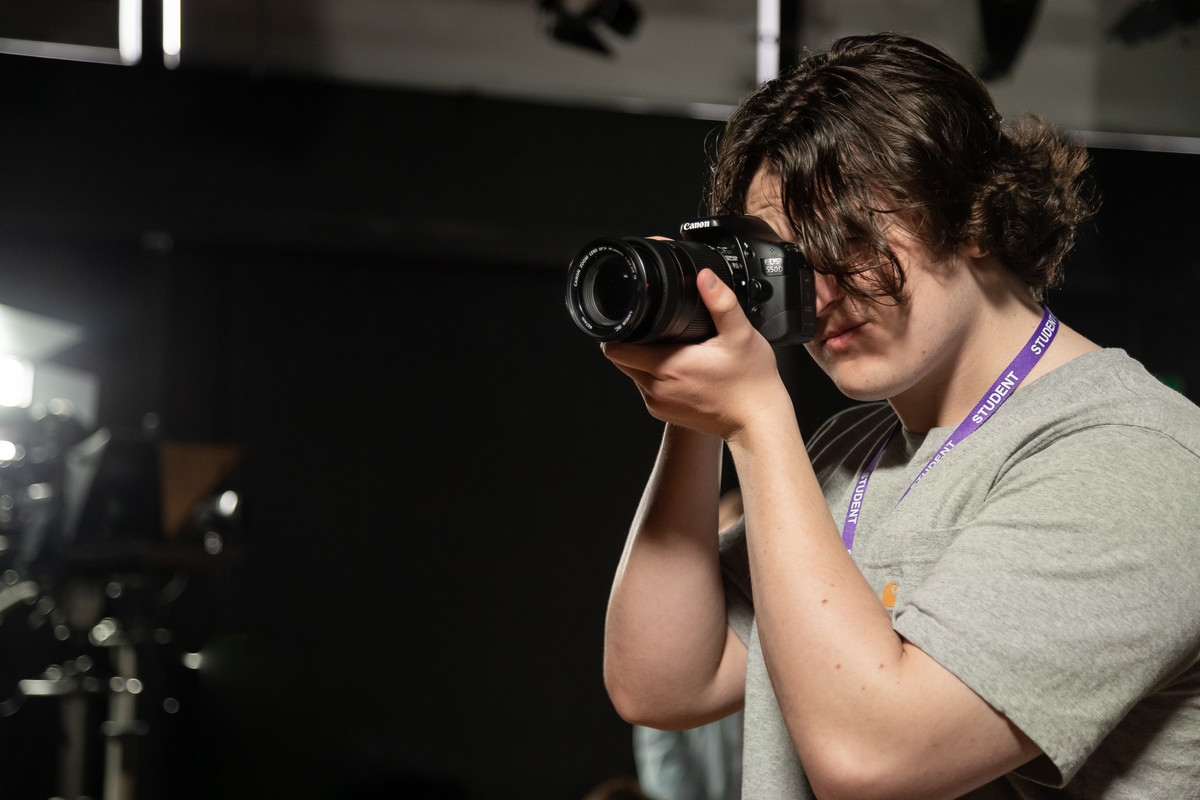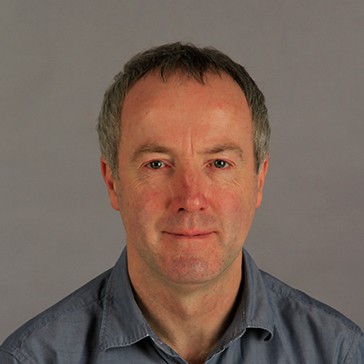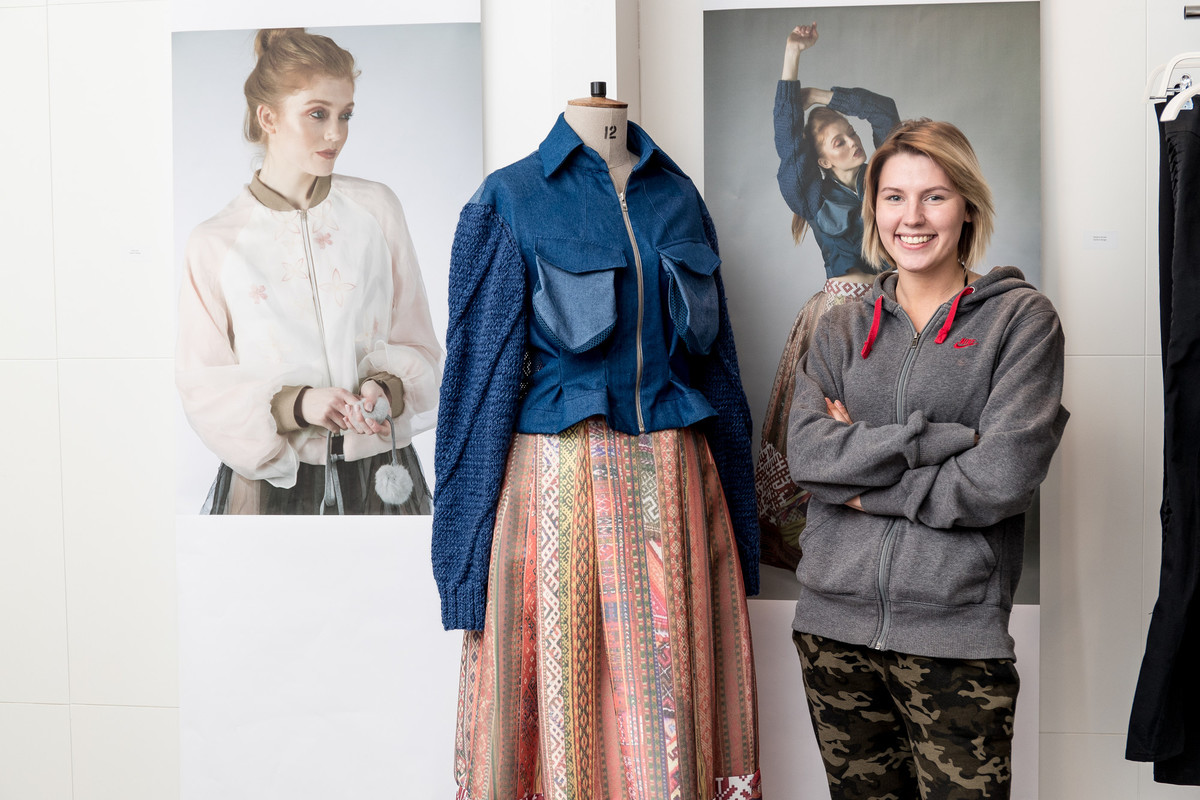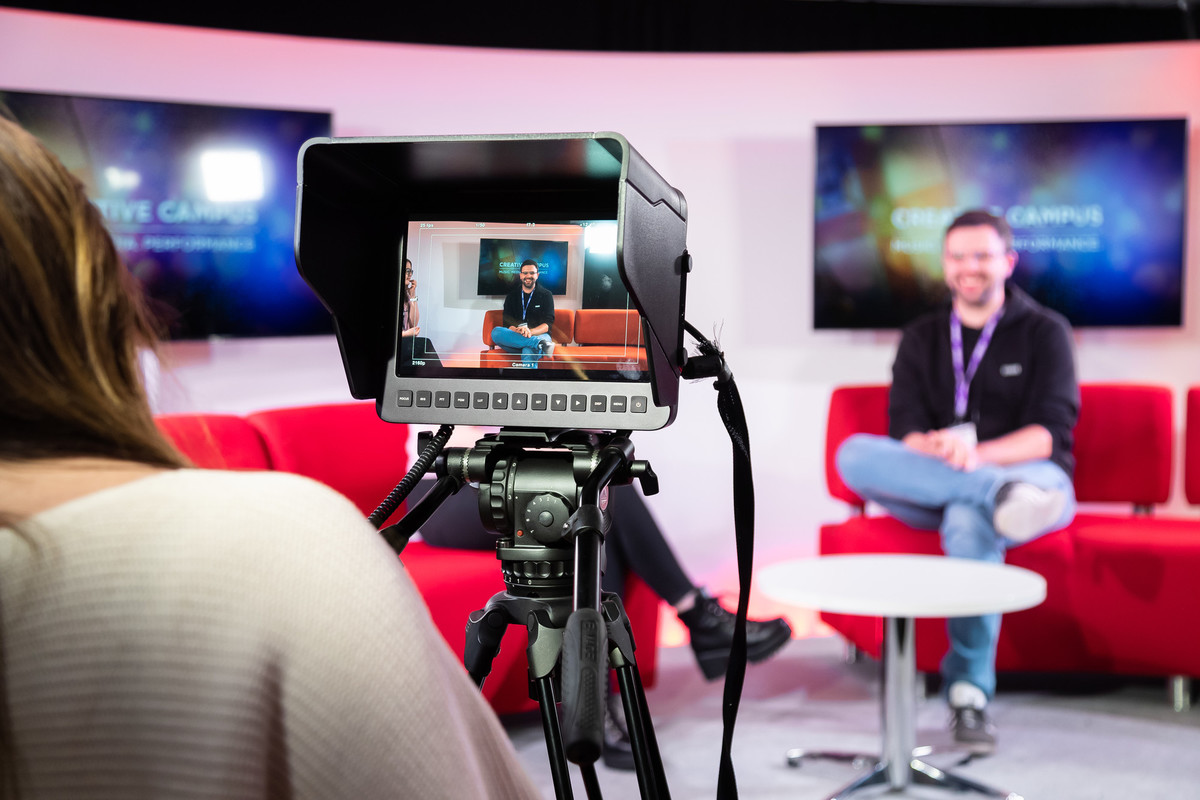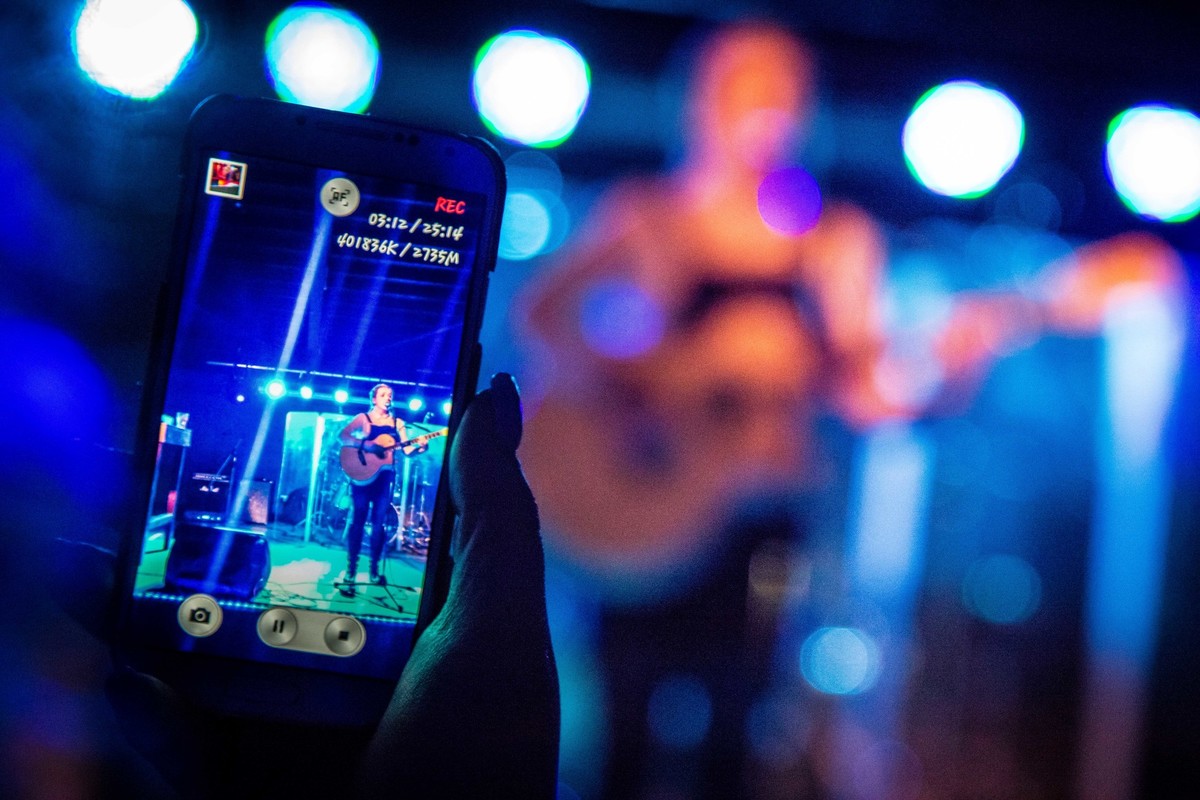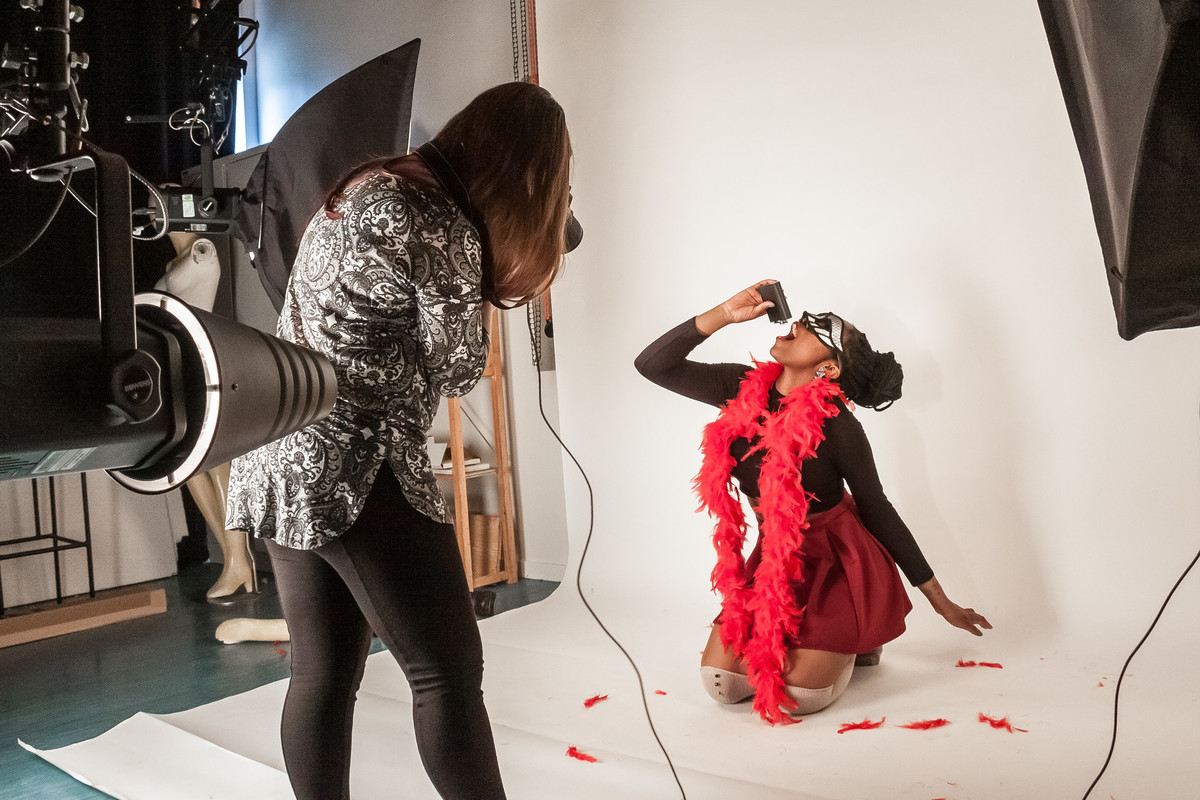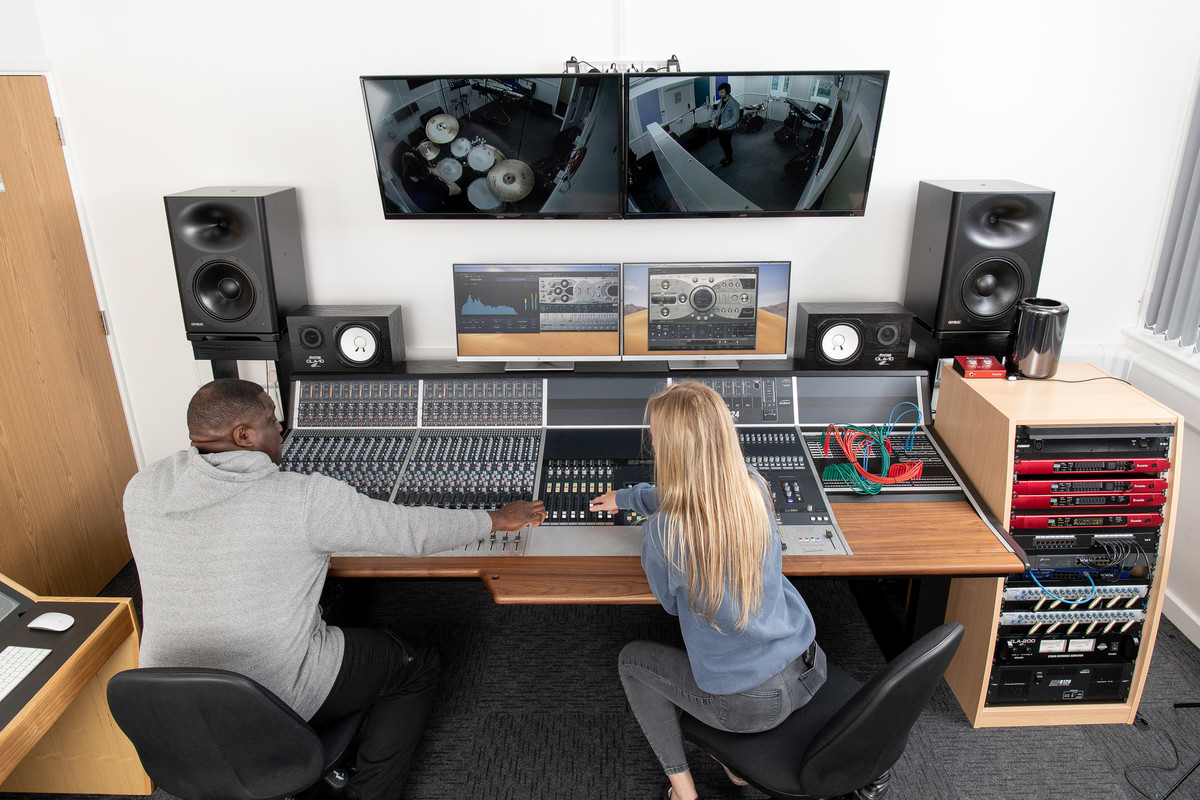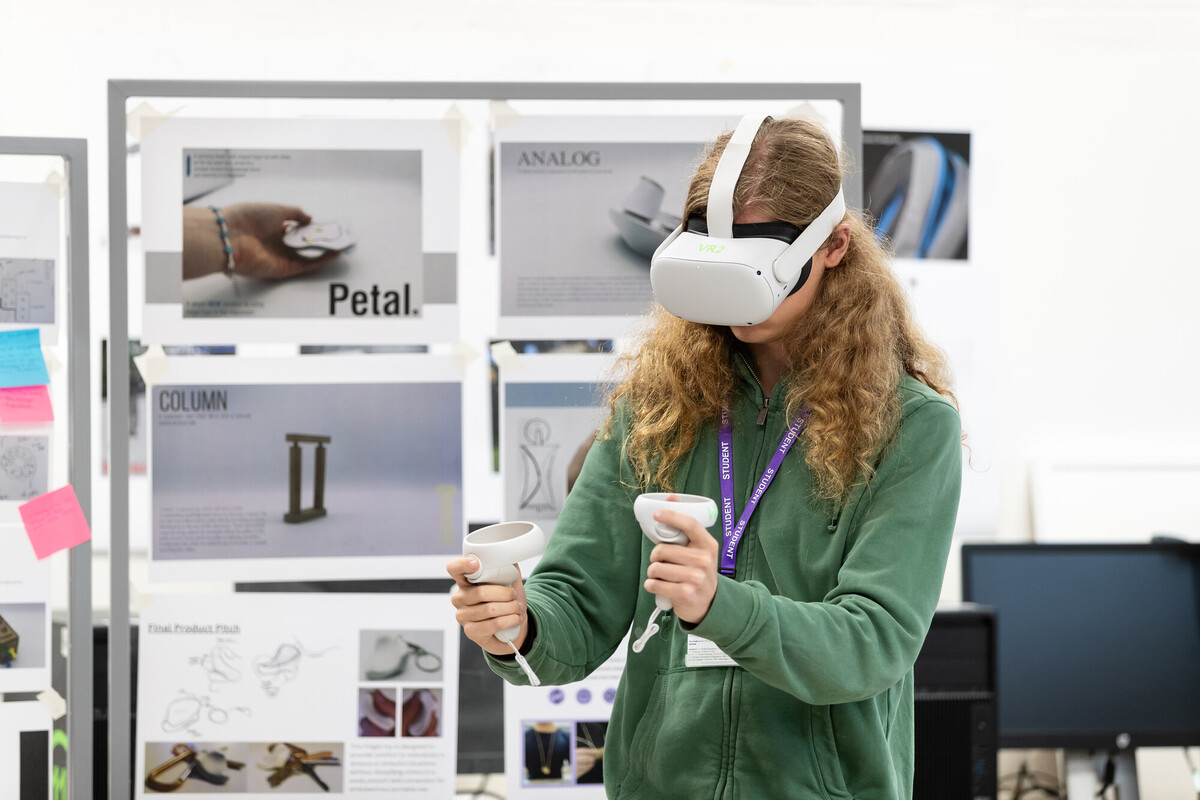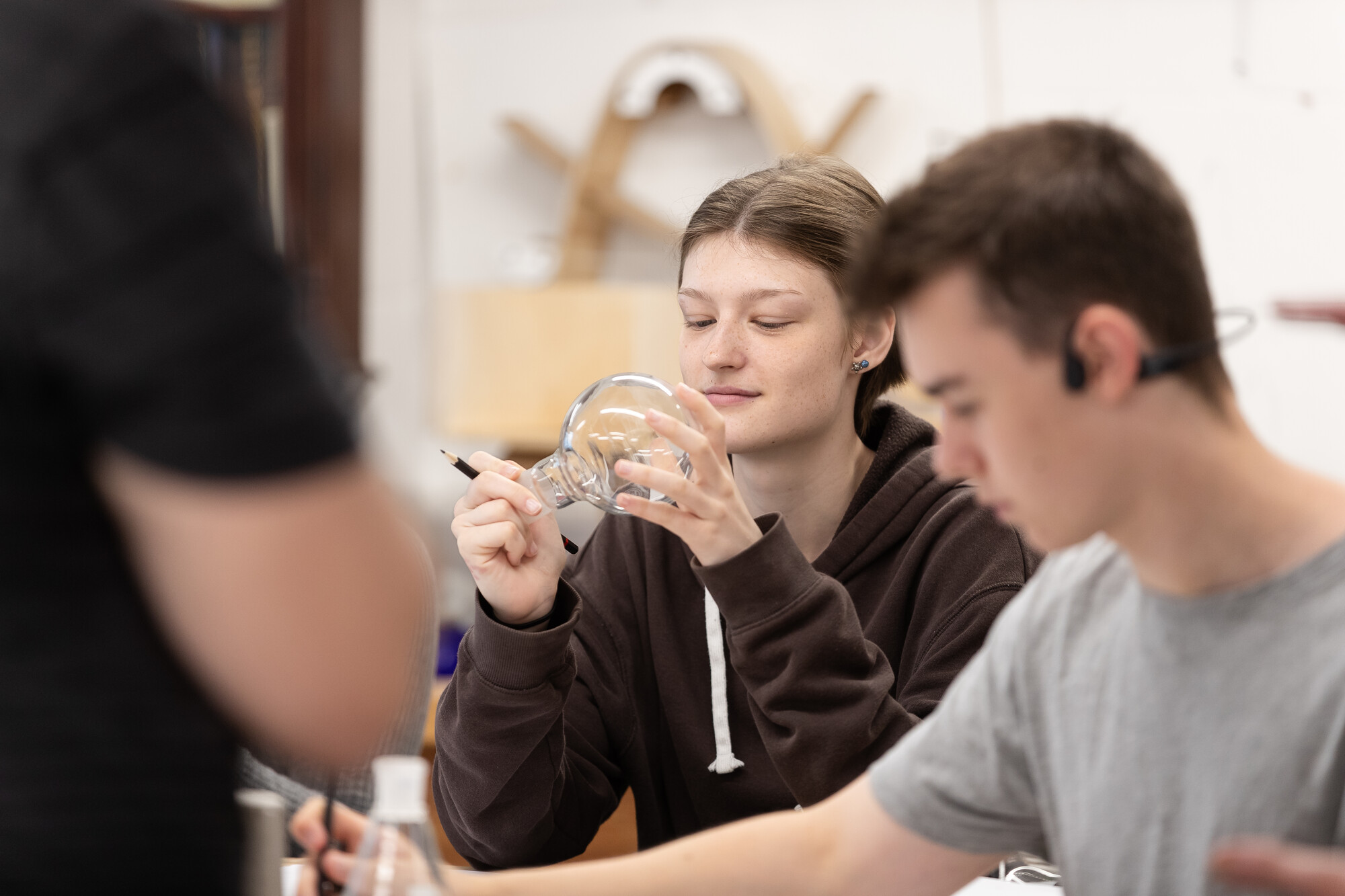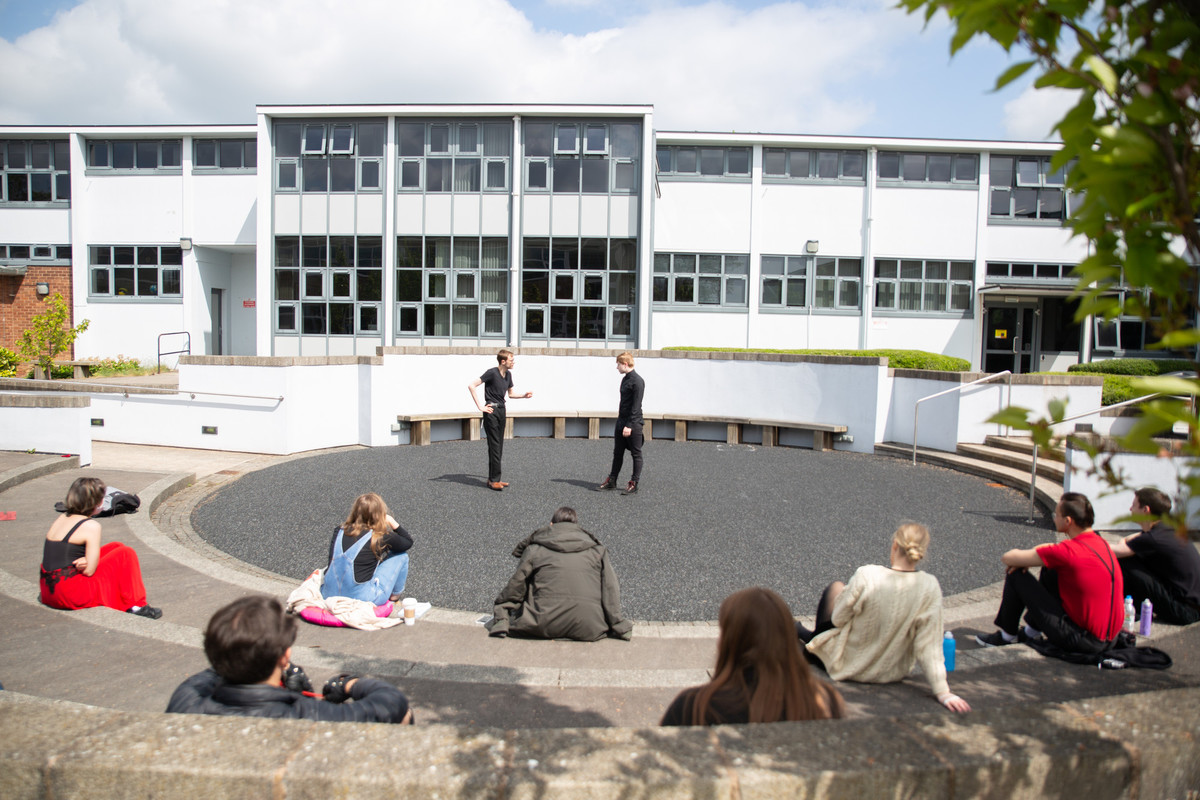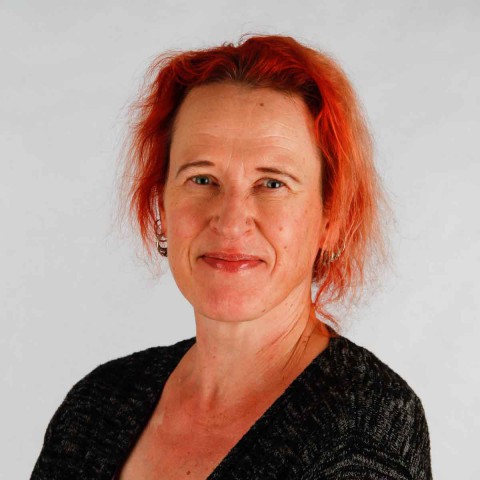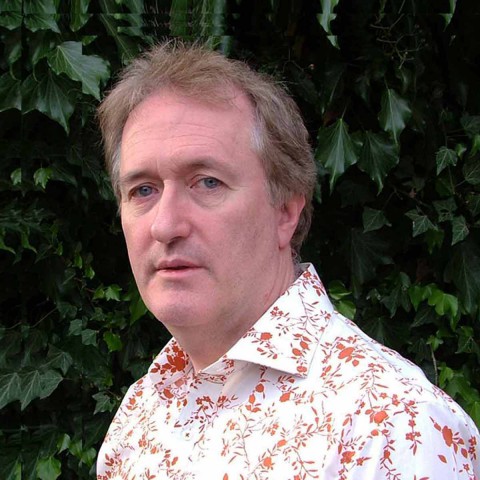The course is delivered across three, ten-week terms each term containing modules to the value of 40 credits. A student’s timetable will schedule in-person sessions each week amounting to between 6 to 12 hours of contact time, and students will be responsible for scheduling self-study time each week of approximately 30 to 34 hours.
If studied, the Foundation Year, as with the following years of study, will be taught in three 10-week blocks across an academic year. Each block will comprise of a large 40-credit subject-specific module that includes a breadth of topics and subject skills. You will have on average 12-14 hours of contact time per week during the Foundation Year. There may be variations to this where subject practical or specialist space teaching is included.
The course is structured around projects, which are introduced via lecture-based briefing sessions and practical sessions, on-site as well as on-location. This approach integrates induction in the use of different camera formats, and lighting equipment.
For each project, you will build a body of work in response to project briefs, which are short-run and long-form in duration. This is supported by one-to-one tutorial support and guidance towards the submission deadlines. The contextual and theoretical study of photography parallels the themes and subjects introduced in practical sessions. This is alongside introducing the key themes and debates that inform contemporary practice, for which you will research and write written outcomes in the form of reviews, essays, and presentations.
Teaching is led by experienced photographers with a wide range of experience in both art, creative and industry contexts; including writing, publishing and curatorial practices. The Photography team at Chester has an excellent track record of research having exhibited nationally and internationally, as well as working on research projects in urban and landscape environments, with community and wellbeing-focused activities and workshops.
The course team also has a depth of publishing and bookmaking experience, which forms the basis for assignments that introduce:
- artist's books
- photobooks
- multiples
- zines
- ‘lookbooks’
- and other forms of print publication.
Assignments will also get you to look at the way in which photography is disseminated online.
We also encourage the use of vernacular forms of photograph, found and collected images, and we ask you to consider how these are repurposed or reconfigured in relation to the work you make.
In this way, our teaching is research-informed and you are at the centre of your studies and practice in how this helps shape your development as an independent and confident photographer. This equips you to become a photographer who is ready to pursue your own practice, embark on a portfolio career, or enter into any of the exciting and varied roles that photography offers in its employability.
The course also helps you to develop transferrable skills via placement opportunities, which can take on a variety of forms to coincide with your future ambitions and aspirations.
The course has an excellent track record of including nationally and internationally recognised guest and visiting lecturers that enhance the student's experience with their external perspective.
Your response to project assignment briefs is based on the development of folio (portfolio) collections or series of photographs.
Your folio collections or series of photographs are the result of the week-to-week development of different approaches to practice, based on your personal, subject, or thematic response. Through this, you will be assessed by your problem-solving and experimentation in your response to a diverse range of assignment briefs. You will also engage with photography’s materiality; exploring the material presence of different types of fine printing, including printmaking.
Your folio submissions are accompanied by a visual and contextual journal, which functions as:
- a personal sketchbook
- technical log
- and diary of your working methods and practices.
This contains your practice through contact sheets produced for each shoot, and your choice of work in progress, which signposts each staging point of your project’s development.
A key part is the way in which you reflect upon the development of your practice and how you respond to tutorial input from your peers, as well as the staff who are supporting and working alongside you. Your journal importantly also includes the research of photography, art and industry contexts, artists and photographers as well as other phenomena, which provides a background and support to your emerging visual identity as a photographic practitioner.
Writing and research-based assignments, which are aligned with and inform your practice will include:
- essays
- (poster) presentations
- statements
- reports
- and ongoing critical reflection (which forms part of your journaling and sketchbook work).
An ongoing dialogue with your peers alongside staff integrates formative, feedforward support and guidance, alongside more formal feedback methods by which you can gauge the development of your practice and research as part of a continuous and authentic process. This equates with how you will prepare for and promote your practice and employability following graduation.
BA Photography Students are provided with all the equipment needed to complete project assignments and workshop tasks. This equipment is housed in a dedicated camera store, is available for loan using your student card, and is looked after by our excellent team of technical support staff.
Students are responsible for consumables and material costs associated with any art and design study and these are subsidised as appropriate. The production costs associated with the individual preparation of final year project work are specific to your practice and requirements, but they are also supported by resources, facilities and materials that the School is able to facilitate.
All teaching is delivered by experienced academics and practitioners, with the fundamental principles of the Chester Future Skills Curriculum at its core - building your subject competence, confidence, and key transferable skills to shape you into a world-ready Chester graduate.
